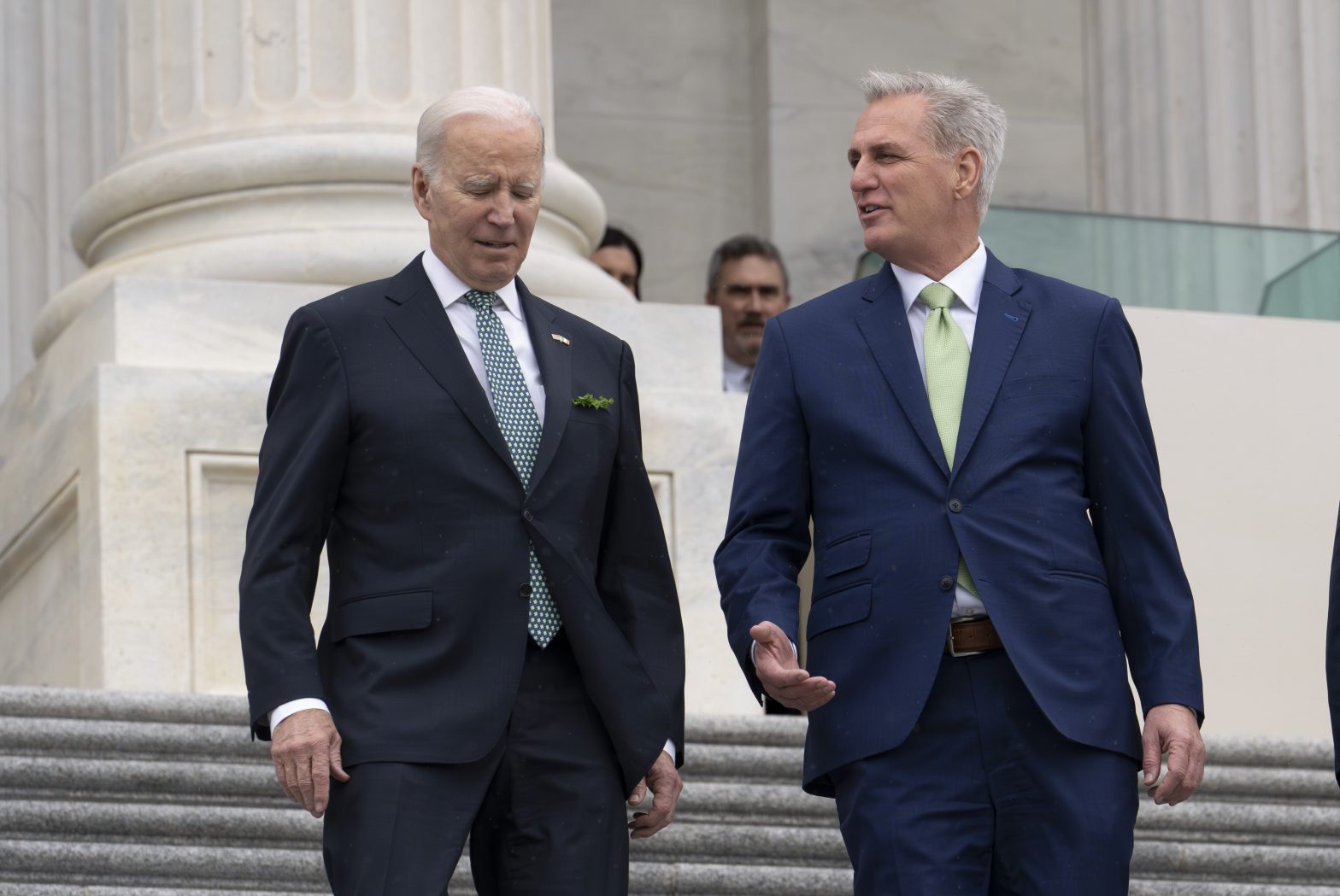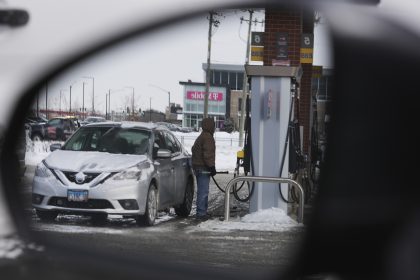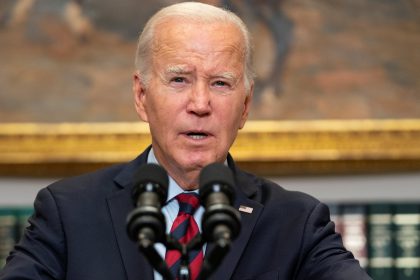Democrats Pressure GOP on Debt Limit, Spending Cuts

WASHINGTON (AP) — Senate Democrats are pressuring Republicans on the debt ceiling impasse with a hearing Thursday focused on what they say are the the painful reductions in government services Americans would suffer if a bill recently passed by the House were to become law.
No one expects that the House bill, which would importantly increase the nation’s borrowing authority as well as cutting spending, will reach President Joe Biden’s desk. The Democratic Senate won’t let it.
Many Republicans admitted so when passing the measure. But they said action by the House was necessary to get Biden to the negotiating table with Republican Speaker Kevin McCarthy. A meeting at the White House with congressional leaders of both parties is set for next week.
Despite the legislation’s certain demise, Democrats are eager to tie Republicans, particularly in swing districts and states, to various provisions in the bill. Those include one that would cap next year’s spending at 2022 levels and allow it to rise only 1% annually in ensuing years.
That change, which accounts for most of the projected $4.8 trillion in savings, could have severe impacts on programs such as Head Start and Meals on Wheels, cancer research and veterans’ health care, Democrats say.
“If Republicans won’t level with the American people about their terrible bill, Senate Democrats are going to do it for them,” Senate Majority Leader Chuck Schumer, D-N.Y., said.
It’s just the latest jousting in Congress over the debt limit, a legal limit to government borrowing that has been raised repeatedly in recent years as the nation’s debt has swelled past $31 trillion. Urgency around the issue intensified this week as the Treasury Department announced that the “extraordinary measures” being used to avoid a devastating government default could run out on June 1 — giving lawmakers just a few weeks to find a solution.
Republicans describe the Democratic effort as a distraction that won’t change their position: Biden must negotiate on spending reductions in exchange for increasing the debt ceiling.
“It’s showboating to badmouth the fact that the only thing that’s been done on the debt ceiling and on the budget is what Republicans have done,” said Sen. Chuck Grassley, the ranking Republican on the committee. “Now the ball is in the court of the president to negotiate, and they want to distract from that.”
The House bill would reduce deficits over 10 years by, among other things, clawing back unspent COVID aid, removing the clean energy tax credits that Biden signed into law last year and reversing Biden’s student debt forgiveness and repayment plan.
But those spending reductions could come at a cost. Moody’s Analytics estimated that the Republican bill would cause 790,000 job losses next year.
Mark Zandi, chief economist at Moody’s Analytics, said in his prepared testimony to the committee that the timing of the spending cuts envisioned in the House bill would “meaningfully increase” the likelihood of a recession. Economic growth, he projects will be about 2.23% should Congress pass a clean debt ceiling, versus 1.61% if the House Republican legislation becomes law.
Republicans have argued that reduced spending is necessary to curb the inflation that has increased the cost of fuel, food and housing. They say their legislation will put the country’s finances on a slightly more sustainable path without harmful hikes to income taxes.
Sen. Sheldon Whitehouse, the Democratic chairman of the Senate Budget Committee, mocked that rationale. House Republicans care about the debt “sporadically,” he said, pointing to $7 trillion in debt that was added under President Donald Trump and $3 trillion under President George W. Bush.
“But when there’s a Democrat in the Oval Office they seek to interfere with the ability of government to function, whether it’s shutdowns or near-defaults, or blocking economic recovery legislation,” Whitehouse said. “They seek to cause chaos.”
Republicans have been particularly sensitive to Democratic criticism that their measure would cut veterans’ access to health care.
Zandi said he expects Republicans will work to exclude defense programs and veterans’ health benefits from the cuts when enacting future spending bills. Even so, non-defense spending approved by Congress each year would fall to 2% of GDP by 2033, the lowest level since at least the early 1960s. Such non-defense spending does not include mandatory funds for Medicare and Social Security.
Two other witnesses will seek to make the case for the U.S. to continue provisions passed into law last August that are designed to curb global warming and boost clean energy production and consumption. House Republicans propose rescinding most of the various energy tax credits and spending, which would reduce deficits by more than $500 billion over 10 years.
But those tax breaks have spurred billions of dollars in private sector investments across the country, according to Abigail Ross Hopper, president and CEO of the Solar Energy Industries Association. She said in her prepared testimony that some 40 new electric battery manufacturing sites are coming to states such as Michigan, Arizona and South Carolina. Companies are also expanding their battery manufacturing plants in states such as Oklahoma and Alabama, while wind-power manufacturing facilities are coming to Iowa, Georgia, Texas and others.
“The IRA’s substantial and almost immediate results have made the U.S.’s clean energy economy the envy of the world,” she said in her written remarks.
And Fred Krupp, president of the Environmental Defense Fund, will testify on the importance of maintaining a charge on excessive methane emissions from U.S. oil and gas facilities that the House bill would repeal. He said swift cuts in methane could slow the rate of global warming by 30%, plus provide important health benefits to Americans who live near active oil or gas sites because other pollutants, such as cancer-causing benzene, are emitted alongside methane.
“Congress was right to enact it, public health and the environment will benefit from it, and it should be left in place to do its job,” Krupp said.






















